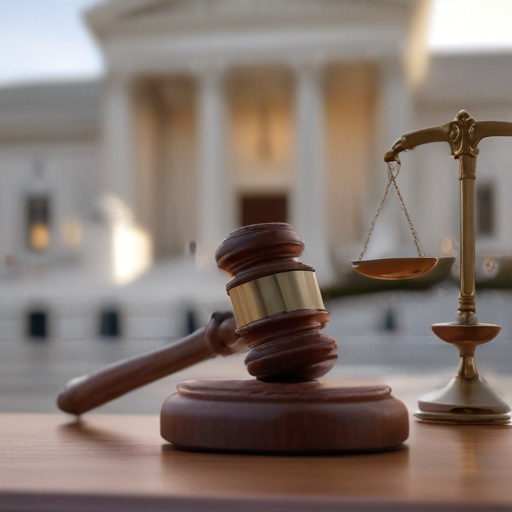The Supreme Court has allowed President-elect Donald Trump’s criminal sentencing to proceed in relation to his New York hush money case, despite his attempts to delay the process. The decision came from a divided court on Thursday evening, which rejected Trump’s request to halt the sentencing scheduled for Friday morning. Trump was convicted on 34 counts of falsifying business records to cover up reimbursements made to adult film actress Stormy Daniels.
In a brief unsigned order, the court stated that Trump’s assertions of entitlement to immunity as president-elect did not warrant halting the sentencing. Four conservative justices expressed their preference to grant Trump’s request, but ultimately, they did not secure the necessary five votes needed for success. Chief Justice John Roberts and Justice Amy Coney Barrett joined the court’s three liberal justices in permitting the sentencing to move forward.
Judge Juan Merchan, who is overseeing the trial, has indicated that he does not plan to impose jail time and will allow Trump to attend the hearing via video feed. Trump argued that the timing of the sentencing too close to his inauguration presents an unreasonable burden, asserting that prosecutors incorrectly relied on evidence pertaining to his actions while in office.
The New York prosecutors, who urged the Supreme Court to allow the sentencing to occur as planned, asserted that Trump’s claims about his entitlement to leniency were unfounded. They emphasized the strength of the evidence against him, stating that a jury would have likely found him guilty irrespective of the contested evidence.
After the Supreme Court’s decision, Rep. Jamie Raskin, a Democrat and ranking member of the House Judiciary Committee, called for Justice Alito to recuse himself from future cases related to Trump, citing the importance of maintaining impartiality within the judicial system.
This situation reflects the ongoing legal challenges facing Trump, with significant implications for his political future as he prepares to assume the presidency once more. The decision by the Supreme Court to deny the postponement shows that the judicial system is upholding its processes, even in cases involving prominent political figures.
While the circumstances are challenging, it is essential for the rule of law to prevail, reminding us that justice must be served regardless of a person’s status. As the legal proceedings unfold, it will be intriguing to see how they affect both Trump’s presidency and the broader political landscape moving forward.
